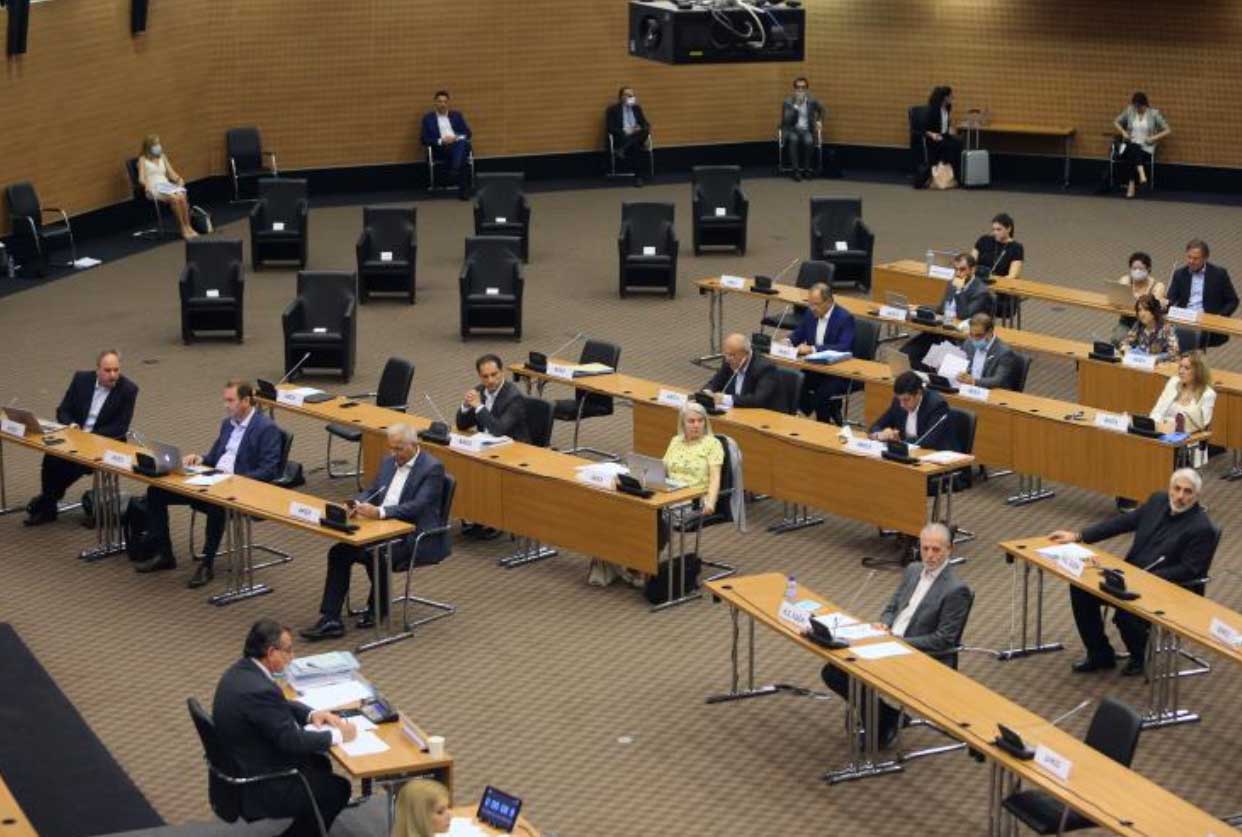In a presidential system, parliament is not directly involved in government as it is in a parliamentary democracy, but it can make life very difficult for the executive by blocking legislation or amending bills beyond recognition. The last parliament caused countless difficulties for the Anastasiades government, culminating in the voting down of the state budget for 2021. It was the first time this had ever happened and the government was forced to engage in political horse-trading with small parties to eventually get it through.
Things became worse after this with the parliamentary elections on the horizon. Bills for reforming the dysfunctional judicial system and rationalising local government were left for the new parliament to vote on, with no guarantee they would be approved. At the same time the president returned six laws back to the House on the grounds they were unconstitutional, while the law for state guarantees, to which the parties added a range of new provisions against the advice of the finance ministry, is now awaiting the approval of Brussels.
The fear of another parliament with a hostile majority being elected on Sunday has spurred the government into a spate of announcements on policies calculated to appeal to voters, such as the construction of roads (a traditional vote-winner), longer maternity leave for second and third children, payment schemes for debts to social insurance fund and cash assistance to animal shelters. The biggest announcement was made by the president last Monday when he presented the government’s National Recovery and Resilience Plan and Cyprus-Tomorrow worth €4.4 billion, provided by the EU and investment, over the next five years.
One positive is that the funding would be with strings attached, like it had been when Cyprus was in the assistance programme. The release of funds would depend on major reforms of state education, local government, the judicial system, the civil service and the energy market being implemented. This could persuade opposition parties in the legislature to adopt a more constructive stance when discussing the reform bills of the government, although there are no guarantees this would happen, especially as presidential elections would be approaching and unions may also try to stop the bills. Nevertheless, the EU’s monitoring of the implementation of the reform programme boosts the chances of the reforms going ahead.
Opposition parties tried to belittle the recovery plan, accusing the government of making promises it would not keep (a constant theme of Akel’s campaign), while Diko reminded us that the EU funds were loans that would have to be paid back. The recovery plan could prove vital for the government in the elections which opposition parties have tried to make exclusively about corruption. They have all focused their campaigns on pledges to tackle the corruption that was rife under the Anastasiades administration and its golden passports policies. The only snag with every party making the fighting of corruption their battle-cry is that they all sound the same. The Greens, Diko, Akel, Edek, Elam, Solidarity all pose as the corruption-busters that would clean up the country, even though they have not explained how they would realise this noble objective.
The funny thing is that the promises of fighting corruption do not wash with the electorate. An opinion poll presented on Antenna TV last week asked which party could best handle the fight against corruption and 45% of respondents said none of the parties; 12% said Akel, 11% said Diko and 10% did not know. Given a choice of explanations for the surge in corruption (the way parties and politicians operate 26%; our mentality as a people 21%; non-implementation of the laws 15%; absence of effective legal framework 11%) some 27% said ‘all of the above’. It was instructive, however, that one quarter of people believed it was because of the ways parties and politicians operated.
In other words, the voters do not seem to take party campaign pledges about corruption very seriously as a sizeable proportion consider the parties and the mentality of the people to be the main causes. This might not let Disy and the government off the hook, but it places the problem of corruption in its real context – as an integral part of a political system that has always operated on a transactional basis. The mainstream parties are in no position to take the moral high ground on this. Only the newcomers can do this, but most of them will probably not enter parliament.
The new parliament, whatever its composition, will not fight corruption any more than it has done in the past. All we can hope for is that the parties that win seats will adopt a more constructive approach in dealing with the government reform bills than the last parliament, as EU funds will be conditional on their approval.







Click here to change your cookie preferences